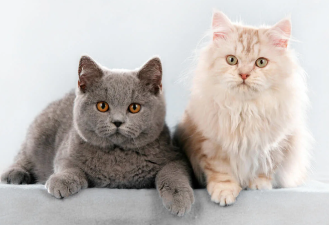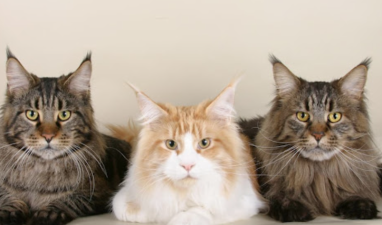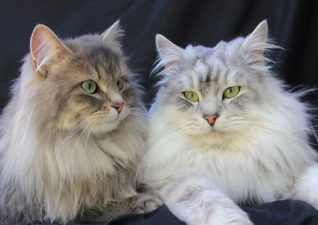Can you still keep a cat if you are allergic to it? Of course you can! About 10% of people worldwide are allergic to pets, and twice as many people are allergic to cats as to dogs! While no cat breed is completely allergenic, some breeds are less likely to cause allergic reactions.
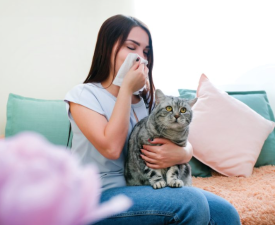
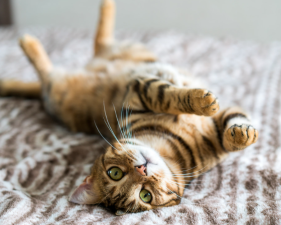
Can you still keep a cat if you are allergic to it? Of course you can! About 10% of people worldwide are allergic to pets, and twice as many people are allergic to cats as to dogs! While no cat breed is completely allergenic, some breeds are less likely to cause allergic reactions.
Causes of Allergies
Let's first understand the causes of allergies. People who are allergic to cats are actually reacting to something produced by cats, and everyone always mistakenly thinks that this substance is cat hair. Although hair can contain allergens, it is actually the Fel d1 protein in cats' saliva, urine, and dander that causes allergies. Since Fel d1 protein is the culprit of allergies, we should look for breeds that produce less of this protein. Another way is to look at the type of hair a cat has, as some types of hair are less likely to cause allergies.

Now let's take a look at 10 breeds that are friendly to allergy sufferers
- Siamese cats Siamese cats are short-haired, and they shed less than other breeds. Although these cats also release less Fel d1 protein, the hair of Siamese cats can capture Fel d1 protein and reduce its release into the environment. Siamese cats meow a lot and have a unique low meow. They are also more sociable than other cats and make great companions.
- Balinese cats Balinese cats look almost the same as Siamese cats, except that they have long hair. Despite their long hair, this cat sheds very little because they only have one layer of hair. Balinese cats also produce less Fel d1 protein. Balinese cats have a personality similar to Siamese cats. They are smart, affectionate and meowing.
- Oriental Shorthair cats Oriental Shorthair cats have short and smooth hair and shed less hair, so they are less likely to spread allergens in the home. They also produce less Fel d1 protein and dander. Oriental Shorthair cats are a mix of Siamese cats and other shorthair cats. They are meowing and like their owners.
- Javanese cats Javanese cats have only one layer of hair, and the hair is very fine, which makes them shed less than other breeds. Javanese cats have a personality similar to Siamese cats, they are smart, curious and need to play every day.
- Russian Blue Cat Russian Blue cats are considered a cat breed that sheds less despite having two layers of dense hair. Their hair is arranged at a 45-degree angle on the body, which makes them look denser. Russian blue cats also produce less Fel d1 protein and dander.
- Cornis Rex Cat This cat has unique small wavy hair that looks curly. This hair type sheds less and has only a very fine undercoat and no topcoat.
- Devon Rex Cat This cat looks a bit like an alien. Their hair is also wavy, and they shed less and produce less dander. They are very social and like to be with their owners.
- Selkirk Rex Cat Selkirk Rex cats also have wavy hair that looks like fluff and are called "cats in sheep's clothing." Despite their dense hair, they shed less. This cat has a gentle personality and makes a good companion.
- Siberian Cat Siberian cats are relatively rare in China. They produce less Fel d1 protein and are suitable for people with mild allergies. Siberian cats are adventurous and full of energy.
- Sphynx Cats Sphynx cats are often referred to as hairless cats, but they actually have very fine fur, which makes them perfect for allergy sufferers. Sphynx cats are energetic, love to show off, and are very loyal.

We would like to emphasize again that no cat is completely allergenic. If your cat allergy is not severe, there is a chance that you can tolerate one of these cat breeds. But in any case, be exposed to the cat breed you want before getting one, as everyone's allergies are different. We firmly believe that breeding is a lifelong responsibility.

